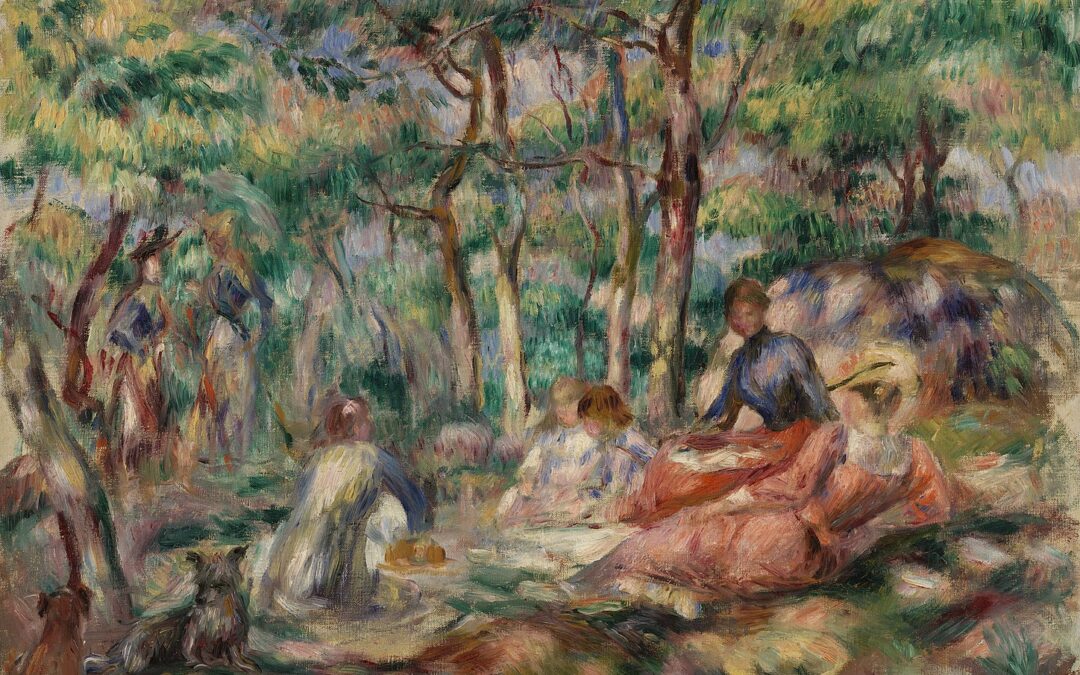 Renoir’s painting’s Le Repos sur l’herbe aka Resting on the Grass l’herbe is a portrait of a family at play. Renoir does not consider this a pique-nique because it is an outdoor gathering. See Pierre Auguste Renoir in Le Repos sur l’herbe and Le Déjeuner sur l’herbe...
Renoir’s painting’s Le Repos sur l’herbe aka Resting on the Grass l’herbe is a portrait of a family at play. Renoir does not consider this a pique-nique because it is an outdoor gathering. See Pierre Auguste Renoir in Le Repos sur l’herbe and Le Déjeuner sur l’herbe...
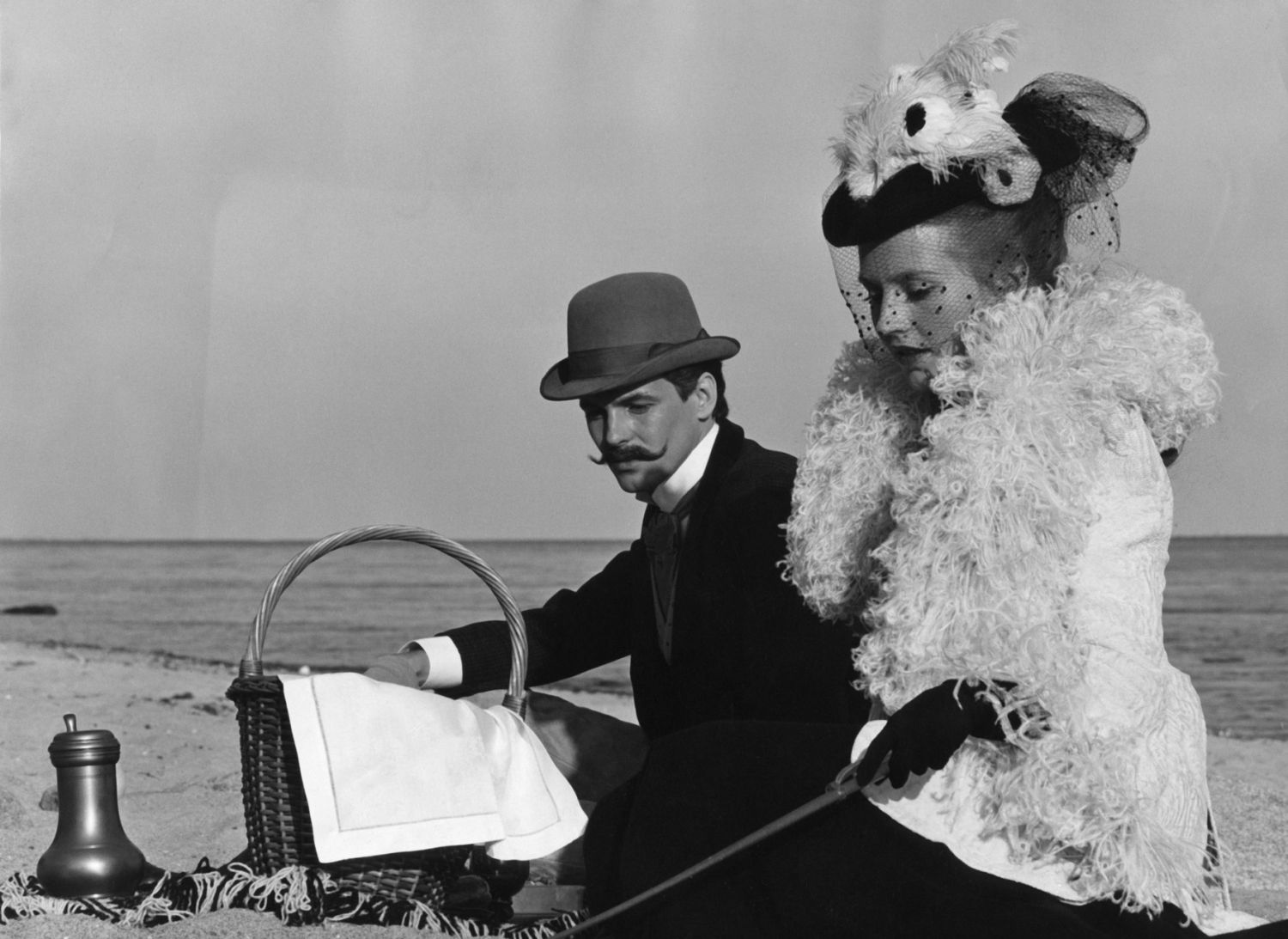 Fontane’s take on adultery in Effi Briest is a long, long sad story hinging on a beach-picnic-love affair. At first, it’s a recreational outing for Effi Briest and a friend, Major von Crampas. But soon, the recreation becomes a cover for lust. Though...
Fontane’s take on adultery in Effi Briest is a long, long sad story hinging on a beach-picnic-love affair. At first, it’s a recreational outing for Effi Briest and a friend, Major von Crampas. But soon, the recreation becomes a cover for lust. Though...
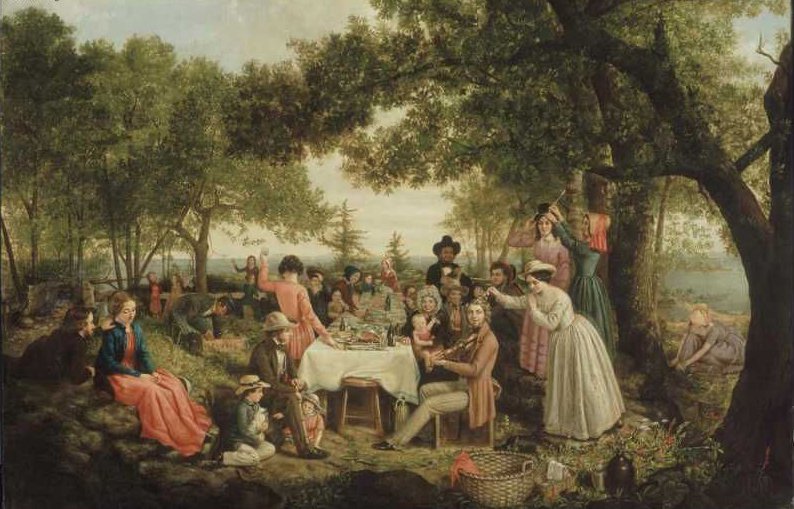 Jewett’s “The Reunion” and “The End of the Feast” are episodes describing the Bowden picnic reunion in Dunnet Landing, a fictional town in Maine. The Bowdens sit at long tables in a grove of trees overlooking the sea. It’s a festive...
Jewett’s “The Reunion” and “The End of the Feast” are episodes describing the Bowden picnic reunion in Dunnet Landing, a fictional town in Maine. The Bowdens sit at long tables in a grove of trees overlooking the sea. It’s a festive...
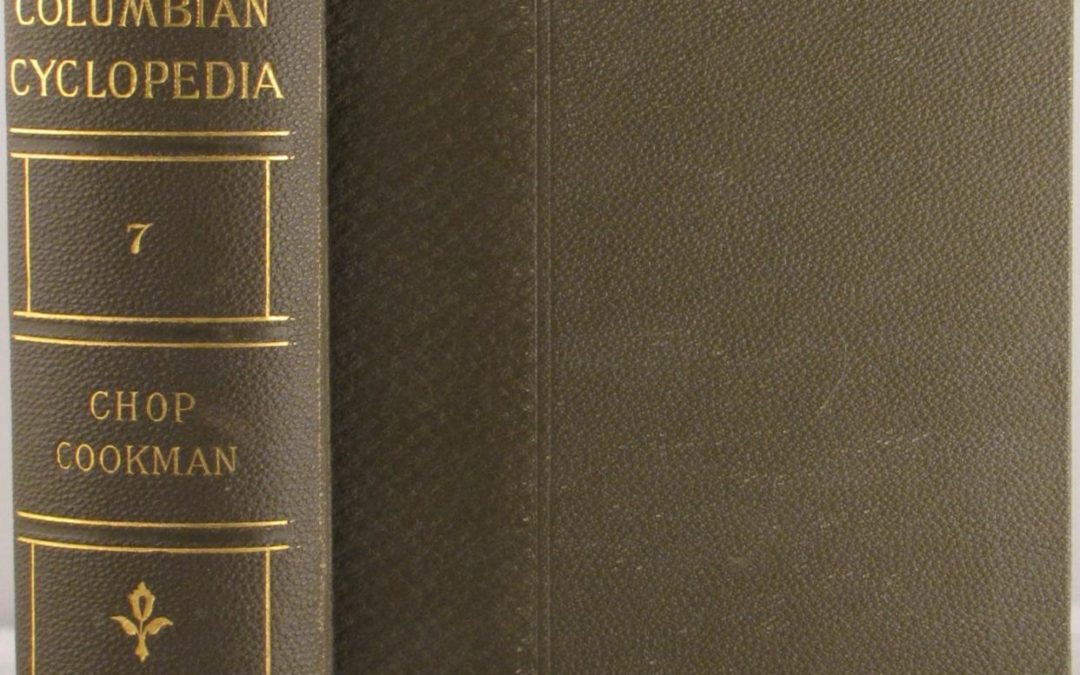 Confused etymology. The editors should have known better than to claim that the “F. pique-nique is derived from Eng. picnic, and not vice versa.” PICNIC, n. pik’nlk [Eng. pick, to eat by morsels; nick, the former familiar name of the tankard for...
Confused etymology. The editors should have known better than to claim that the “F. pique-nique is derived from Eng. picnic, and not vice versa.” PICNIC, n. pik’nlk [Eng. pick, to eat by morsels; nick, the former familiar name of the tankard for...
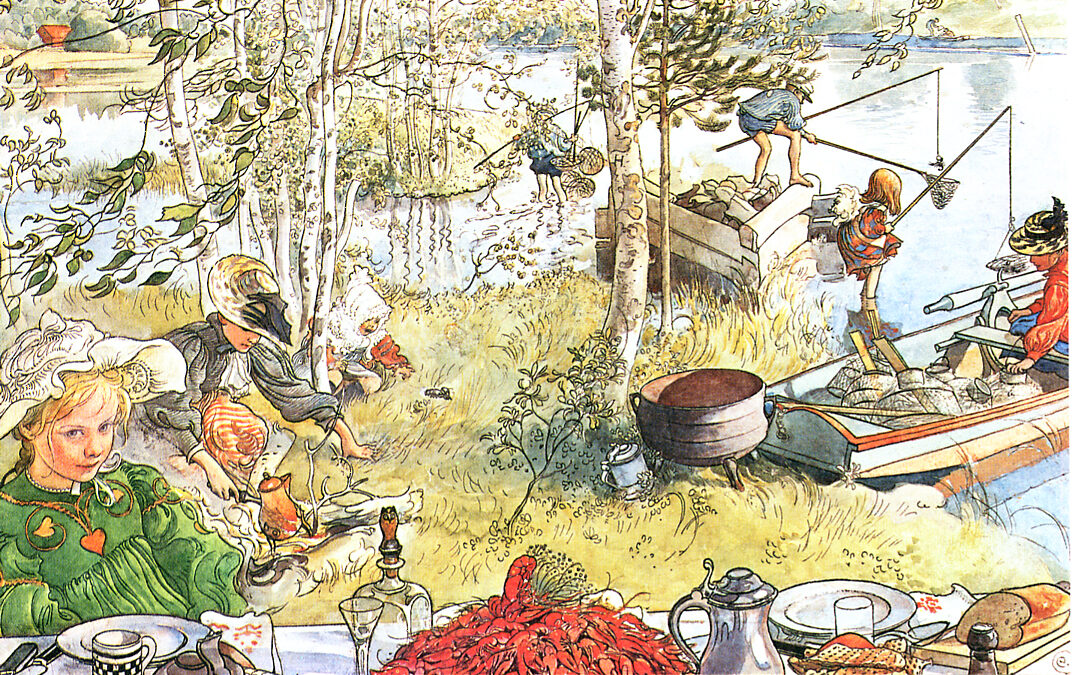 Larsson’s Crayfishing celebrates picnicking in late August when the crayfish are plentiful, the weather is temperate, and the days are very long. Larsson’s family scene shows the wholesomeness of family. In the immediate foreground, a child eyes the mounds of food on...
Larsson’s Crayfishing celebrates picnicking in late August when the crayfish are plentiful, the weather is temperate, and the days are very long. Larsson’s family scene shows the wholesomeness of family. In the immediate foreground, a child eyes the mounds of food on...
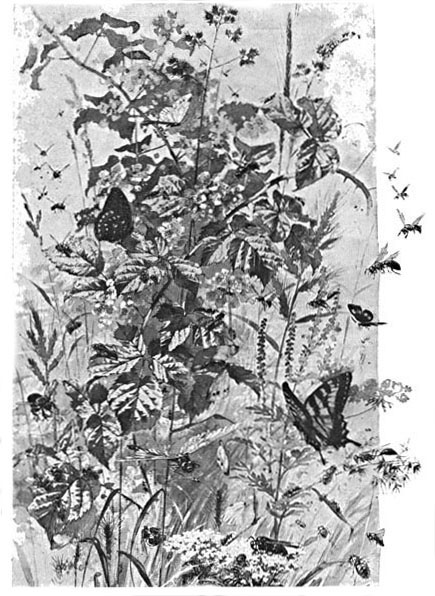 Gibson, nature writer and artist of the 1890s, describes the nature of things in “Honey Dew Picnic” from My Studio Neighbors (1897) is, a humorous essay about the feeding frenzy of insects in a forest. He says that while he never actually witnessed the...
Gibson, nature writer and artist of the 1890s, describes the nature of things in “Honey Dew Picnic” from My Studio Neighbors (1897) is, a humorous essay about the feeding frenzy of insects in a forest. He says that while he never actually witnessed the...
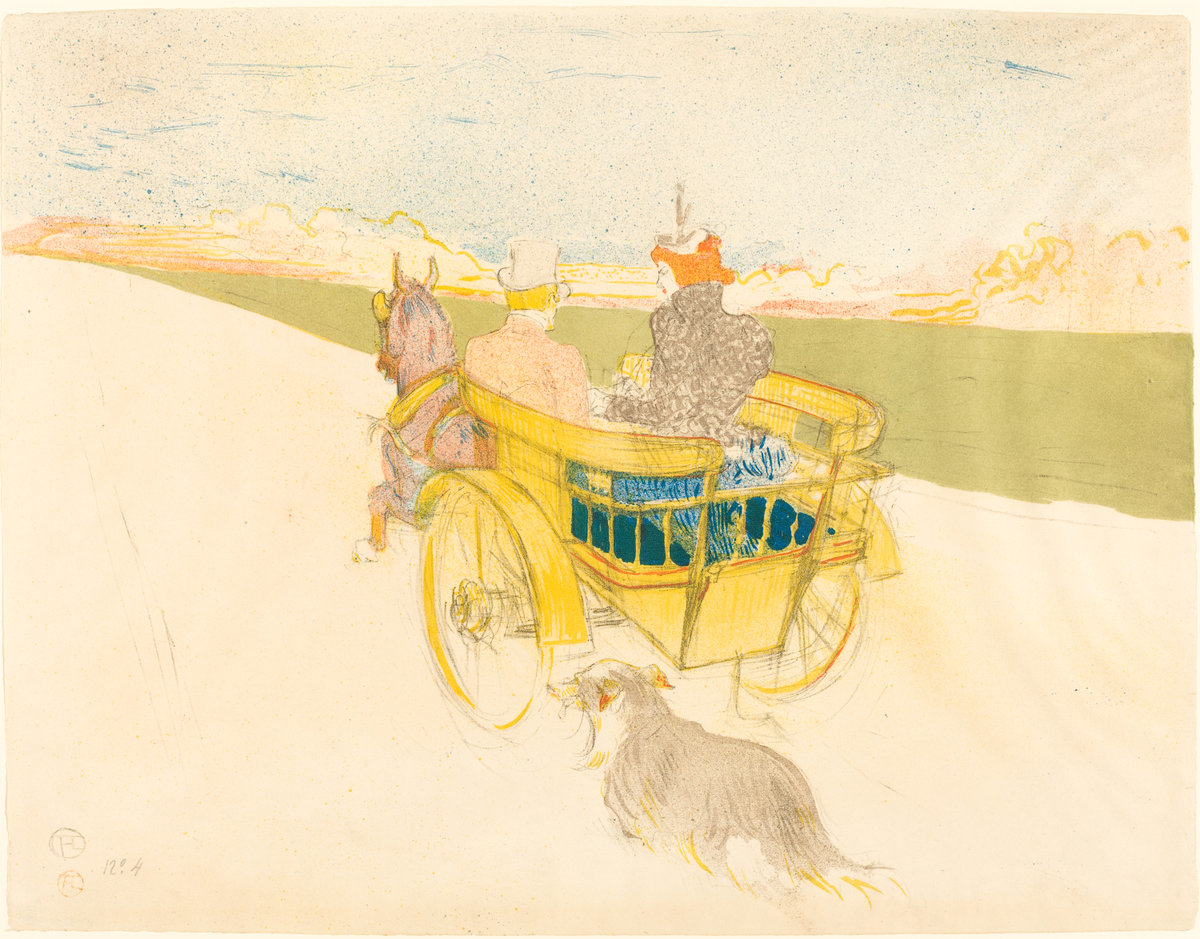 Henri de Toulouse-Lautrec’s Partie de Campagne, an 1897 lithograph, depicts a couple going off to spend a day in the country. Lautrec makes a visual pun by having a dog run behind the conveyance known as a dogcart. According to French usage of the day, Lautrec prefers...
Henri de Toulouse-Lautrec’s Partie de Campagne, an 1897 lithograph, depicts a couple going off to spend a day in the country. Lautrec makes a visual pun by having a dog run behind the conveyance known as a dogcart. According to French usage of the day, Lautrec prefers...
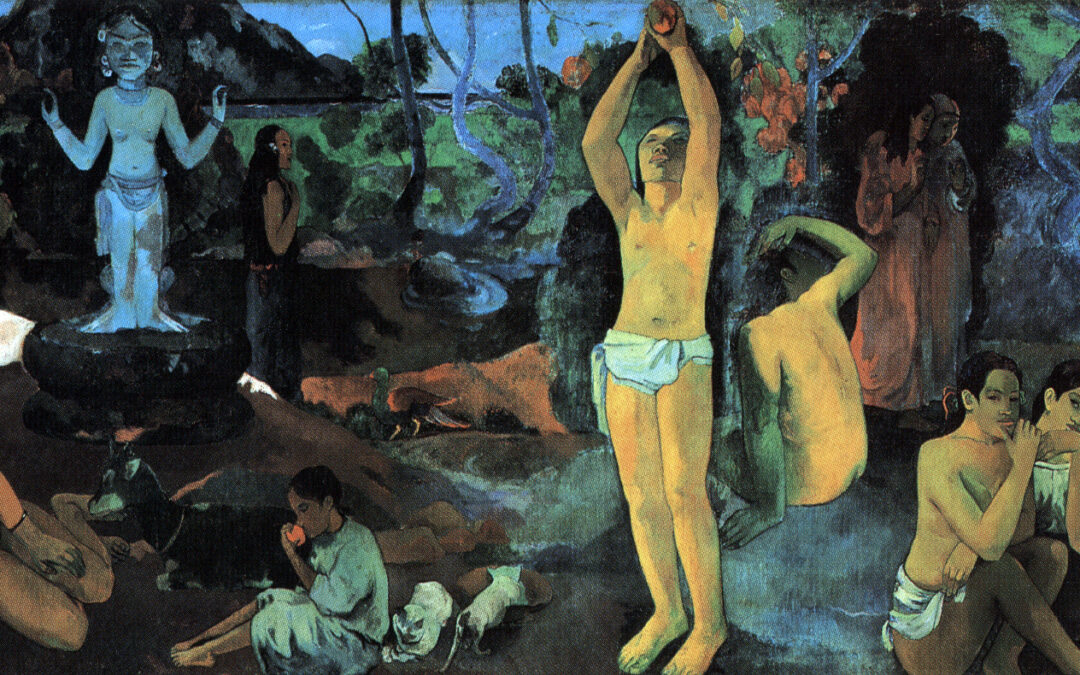 Gauguin’s Where Do We Come From? What Are We? Where Are We Going? Vague vaguely suggests a picnic. Escaped from France, Gauguin seemed to believe his Tahitian life was picnicky. “Everything in the landscape blinded me, dazzled me,” he wrote in the Noa Noa journal. It...
Gauguin’s Where Do We Come From? What Are We? Where Are We Going? Vague vaguely suggests a picnic. Escaped from France, Gauguin seemed to believe his Tahitian life was picnicky. “Everything in the landscape blinded me, dazzled me,” he wrote in the Noa Noa journal. It...
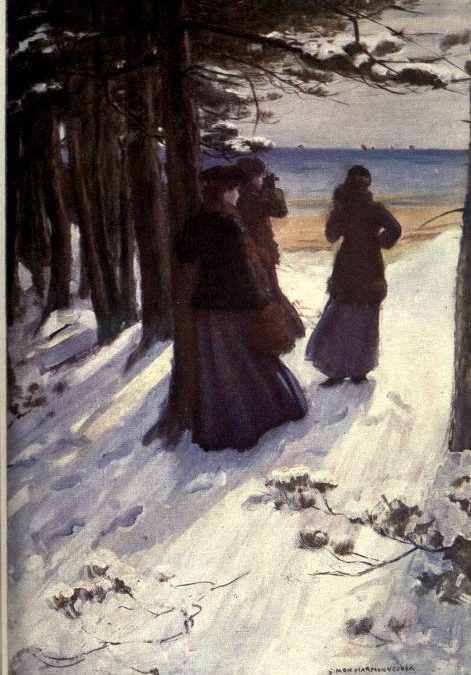 Winter picnics are few, and among the best is Elizabeth von Arnim’s on a freezing afternoon on a bluff above the Baltic. On a brilliant January day, Elizabeth’s birthday, she travels about three hours in a horse-drawn carriage over deep snow to a bluff...
Winter picnics are few, and among the best is Elizabeth von Arnim’s on a freezing afternoon on a bluff above the Baltic. On a brilliant January day, Elizabeth’s birthday, she travels about three hours in a horse-drawn carriage over deep snow to a bluff...
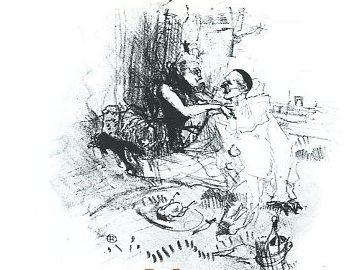 Le Pique-Nique was probably not Toulouse-Lautrec’s title because the French did not use pique-nique for such a meal. The subject is the Pierrot, the sad-sack clown, with whom Lautrec identified as a man who does not get the genuine affection of the woman he loves....
Le Pique-Nique was probably not Toulouse-Lautrec’s title because the French did not use pique-nique for such a meal. The subject is the Pierrot, the sad-sack clown, with whom Lautrec identified as a man who does not get the genuine affection of the woman he loves....











